 Petzlover
Petzlover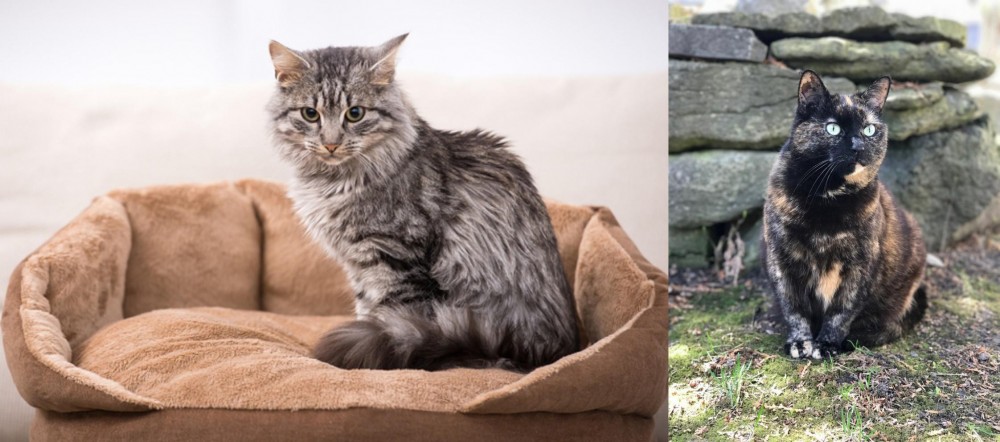 Both Domestic Mediumhair and Tortoiseshell are originated from United States. Both Domestic Mediumhair and Tortoiseshell are having almost same weight. Both Domestic Mediumhair and Tortoiseshell has same life span. Both Domestic Mediumhair and Tortoiseshell has same litter size. Both Domestic Mediumhair and Tortoiseshell requires Moderate Maintenance.
Both Domestic Mediumhair and Tortoiseshell are originated from United States. Both Domestic Mediumhair and Tortoiseshell are having almost same weight. Both Domestic Mediumhair and Tortoiseshell has same life span. Both Domestic Mediumhair and Tortoiseshell has same litter size. Both Domestic Mediumhair and Tortoiseshell requires Moderate Maintenance.
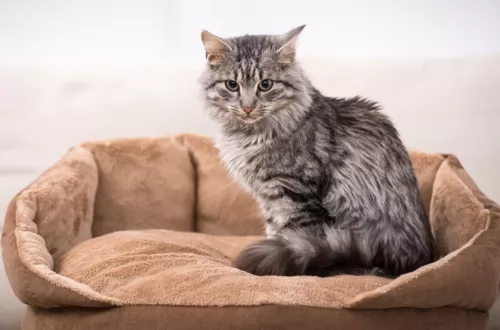 It is unclear as to whether the Domestic Mediumhair comes from Egypt, Europe or the USA.
It is unclear as to whether the Domestic Mediumhair comes from Egypt, Europe or the USA.
It is a mixed breed cat that no one can be sure how it's going to look. It is why they are often referred to as mutts and you’ll likely find them in animal shelters.
It was thought they arrived in America with the Pilgrims, who brought them aboard the ships to take care of the rodent population. Mixed breeding between many generations of cats brought about the Domestic Medium Hair.
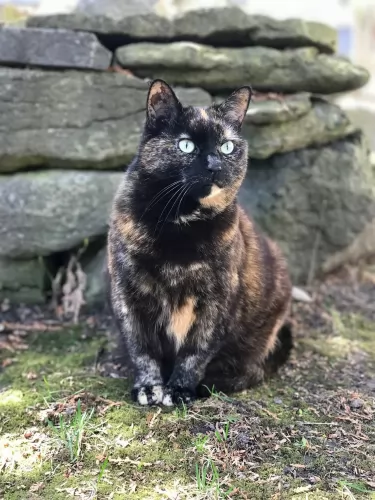 The Tortoiseshell isn’t a cat breed but rather a coat coloring of cats. It just happens that most tortoiseshell cats are females.
The Tortoiseshell isn’t a cat breed but rather a coat coloring of cats. It just happens that most tortoiseshell cats are females.
Known as Torties, these cats always have a couple of colors such as red and black as well as some fawn.
Tortoiseshell cats with the tabby pattern are referred to as Torbie cats. Tortoiseshell markings appear in many different breeds.
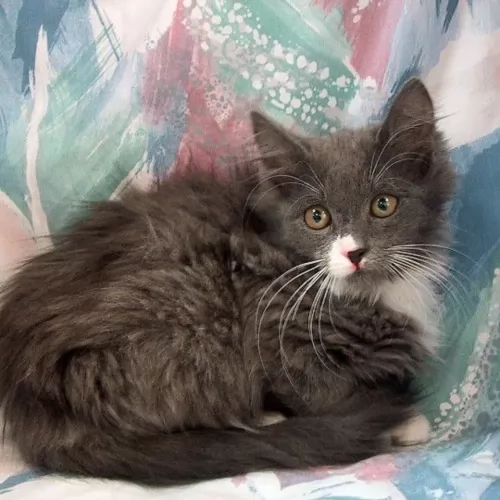 This is a medium-sized cat that weighs in the region of 3 – 6kg. They stand at about 30cm in height but there is no set standard with these cats and their looks and temperaments can vary.
This is a medium-sized cat that weighs in the region of 3 – 6kg. They stand at about 30cm in height but there is no set standard with these cats and their looks and temperaments can vary.
It's a medium built cat, not too thick-set or not too slight. The medium-length coat is thick and double-coated and can be in every color and pattern, including tabby and tortoiseshell.
The eyes can be different shades and the ears large or small too while the tail can also vary in length and bushiness.
Because the Domestic Medium Hair is of mixed ancestry, their temperaments can vary. Some are quiet and docile while other can be very energetic and have a lot to say. Most of them are loving, loyal cats that get on well with childre and other pes in the house. Some are also more independent than others, but a lot can deped on the way you bring your cat up.
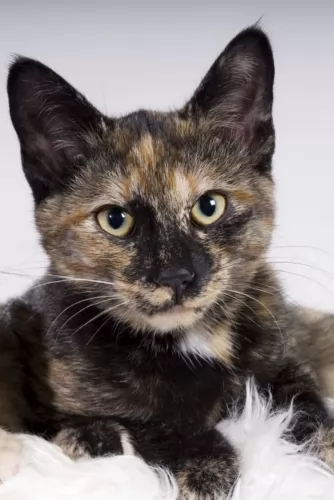 Tortoiseshell cats are your regular-sized cats. They can be medium-sized to large and weigh anything between 3 and 7kg.
Tortoiseshell cats are your regular-sized cats. They can be medium-sized to large and weigh anything between 3 and 7kg.
They come in different colors and patterns. The colors are essentially cream, fawn, black, tan, and orange. Tortoiseshell markings appear in all the different cat breeds.
Because the tortoiseshell cat is a color and not a cat breed as such they can be different sizes and shapes.
Tortoiseshell cats aren't a specific breed, but there are people that believe that just the color of the coat is indicative of the personality – feisty and lively.
People who have owned these cats say they have a sassy temperament and can even be just a wee bit aggressive sometimes with their strong-willed attitude.
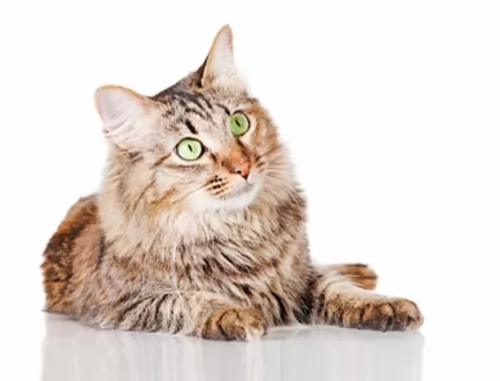 Domestic Medium Hairs come in so many different shapes, sizes and personalities. You’ll also find lots of colors, patterns and personalities with this cat as much depends on the cat’s ancestry.
Domestic Medium Hairs come in so many different shapes, sizes and personalities. You’ll also find lots of colors, patterns and personalities with this cat as much depends on the cat’s ancestry.
Even when you choose a kitten, you can’t really know what you’re going to get – large or small, lively or quiet, independent or needy – its what makes owning a Domestic Mediumhair so fascinating.
One thing every one of them has in common is that they love their human family and they deserve to all receive unconditional care and companionship.
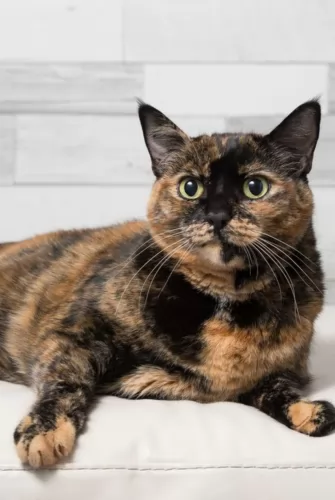 Your Tortoiseshell is a beautiful cat and fondly referred to as a Tortie. It has a coat similar to the coloring of a tortoise, but the temperament of the cat will rely much on your own personality and the lifestyle you provide him with.
Your Tortoiseshell is a beautiful cat and fondly referred to as a Tortie. It has a coat similar to the coloring of a tortoise, but the temperament of the cat will rely much on your own personality and the lifestyle you provide him with.
They are fairly vocal, but because this cat isn't a breed but rather a coat color, nobody can say precisely how it will turn out in personality.
One thing is sure, if you offer your Tortoiseshell lots of love and care, you can be sure of a wonderful feline friend.
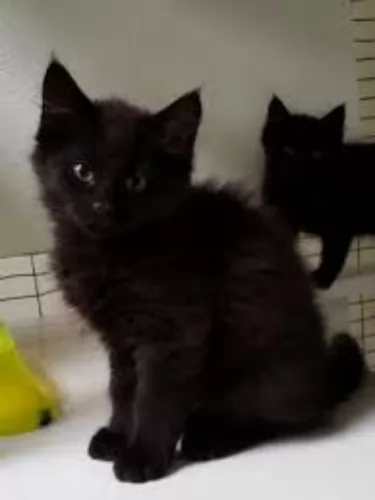 With the Domestic medium hair cat having a mixed ancestry, they are cats that don’t easily succumb to illness.
With the Domestic medium hair cat having a mixed ancestry, they are cats that don’t easily succumb to illness.
You’ll find that the health issues that are common to this cat are typically common to all cat breeds. Some of these typical illnesses are diabetes, kidney disease, obesity, dental problems and hypertrophic cardiomyopathy, a heart disease.
All these illnesses can shorten your cat's life. Gut health is of critical importance so be sure to provide your cat with a top-quality diet.
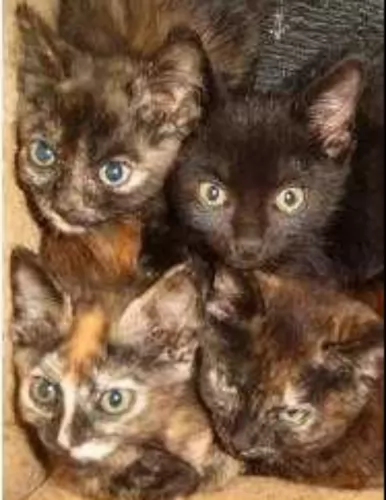 Your cat's health depends on good food. If your finances allow, choose a high-quality food. Check the label for the feeding guidelines.
Your cat's health depends on good food. If your finances allow, choose a high-quality food. Check the label for the feeding guidelines.
Always remember that your cat's age - kittens, adults, and senior cats have different nutritional needs. Sick cats will require a different type of food. Watch your cat's weight because being overweight can bring on a host of illnesses such as diabetes.
A cat has to have access to fresh drinking water every day and night to remain healthy.
Ensuring your feline friend is exercised both mentally and physically is important for good health.
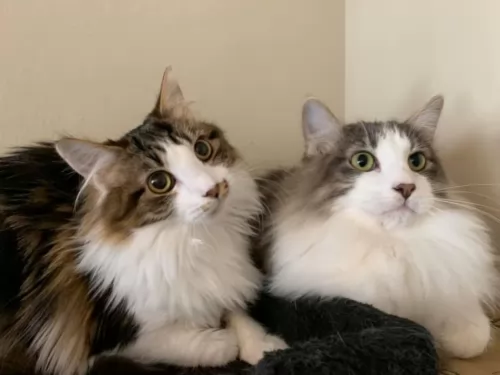 The Domestic Medium Hair has a thick, double coat, and to avoid hairballs and matting, he will need to be brushed at least once a week. Set aside this brushing time to examine your cat’s eyes, the inside of his ears, inside his mouth for bad teeth, to check the length of his claws and to feel for unusual new lumps.
The Domestic Medium Hair has a thick, double coat, and to avoid hairballs and matting, he will need to be brushed at least once a week. Set aside this brushing time to examine your cat’s eyes, the inside of his ears, inside his mouth for bad teeth, to check the length of his claws and to feel for unusual new lumps.
Your cat's diet is as important as life itself. Your cat is a carnivore and should be fed meat. He won’t do well on carbs. Speak to your vet if you’re unsure about how to feed your cat.
Meanwhile, there are some excellent commercially manufactured cat foods on the market and if you choose the best ones with meat at the top of the ingredients list, you can be doing the right thing.
Kittens start with 4 meals a day while the older cat will do well on 2 meals a day. It is most important to feed your kitten the very best food – the correct diet – because their bones, brain, coat and energy all depend on this for the rest of their lives.
Remember too that there are cat foods that cater to the different seasons of your cats life. A kitten, young adult, energetic breed, pregnant cat, a cat with disease, and a senior cat will all have a choice of foods made by the top brand cat food manufacturers. Each food caters specifically for the cat’s unique needs.
Keep your cat's vaccines and de-worming up to date. Parasites left unchecked can make your cat sick.
You can provide your cat with all the best food, toys, comfy bedding and medical care you like, but if you don’t provide him with love and attention, it will all be in vain.
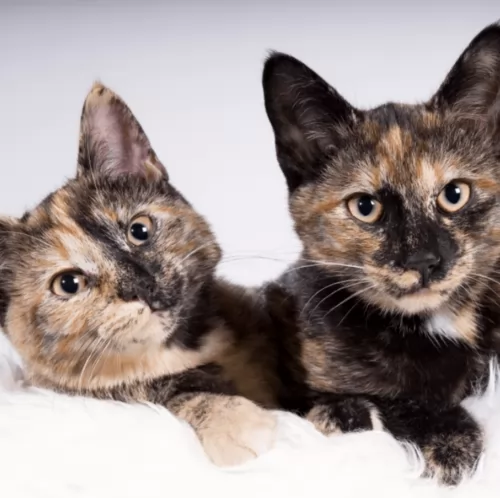 Cats are known to be independent but they still need your care and attention. Before you take a Tortoiseshell into your home, prepare for his arrival.
Cats are known to be independent but they still need your care and attention. Before you take a Tortoiseshell into your home, prepare for his arrival.
Make sure you have food and drinking bowls ready, a comfortable bed, a stylish cat collar and tag of identification, cat accessories such as a brush, toys, and some top-quality cat food.
If you work all day, maybe it would be a good idea to get 2 cats as some cats can get very lonely during the day, and adding a companion can be an excellent solution for his loneliness.
Always be in touch with the vet if you see that your cat isn’t behaving in his usual way.
Your cat will need to be taken for check-ups and also all the necessary cat vaccinations required to ward off deadly cat illnesses.
Provide your cat with a litter box and make sure you remove the cat feces every day.
Provide your cat with toys. Choose them carefully to keep your cat happy and amused. Buy a scratching post too as all cats want to scratch and you want to save your furniture from your cat using it to scratch on.